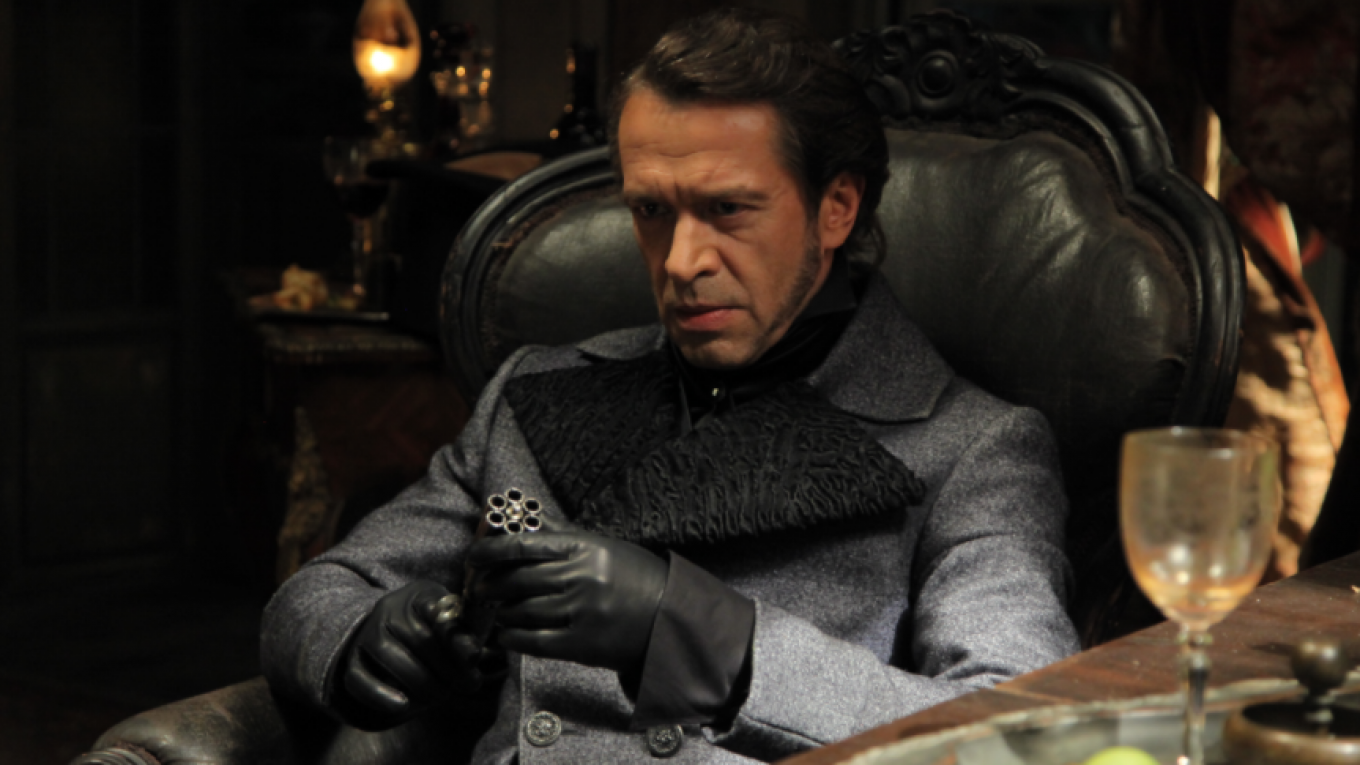With its high society setting, pistols at dawn premise and star-studded cast, it’s hardly surprising that Alexei Mizgirev’s latest film has topped the box office in Russia this autumn. “The Duelist,” which follows the tale of a retired officer who works as a duelist representative—standing in for others in duels—is set to enjoy a limited release in the United States this December.
Best known for his art-house films such as “Buben, Baraban” (Tambourine, Drum) and “Convoy,” Alexei Mizgirev’s “The Duelist” marks a change from the director’s usual offerings. A blockbuster pure and simple, the film was produced by Alexander Rodnyansky and his company Non-Stop Productions, which was also responsible for Golden Globe winner and Oscar nominee “Leviathan” by Andrei Zvyagintsev.
The film’s setting is familiar to any Tolstoy reader: high society in late 19th century St. Petersburg. This, however, is no “Anna Karenina.” The plot of “The Duelist” focuses on the character of Yakovlev, who earns a living by fighting on behalf of other people in duels. The idea came to Mizgirev when he read 19th century Russian duel law and found a loophole: it allowed for a duelist to be replaced by a substitute. Dueling was an important way for an individual to maintain their honor in society.
“Nowadays, people come to ignore disrespect. We tolerate it the best we can and keep on going. In the 19th century, nobility knew that honor was not a formal supplement to the rest of everyday routine, they believed it was a vital necessity,” said Mizgirev.
The cast is impressive. Pyotr Fyodorov, famed for his roles in Fedor Bondarchuk’s blockbusters “Stalingrad” and “Inhabited Island,” plays Yakovlev. German actor Martin Wuttke (of “Inglorious Basterds”) plays Baron Staroe, who finds clients for Yakovlev, while Yury Kolokolnikov (“Game of Thrones”) has a memorable cameo as one of Yakovlev’s opponents. There’s violence, Russian roulette, bullets, an early bicycle a “velocipede” and even a touch of magical realism courtesy of a group of Aleutian shamans.
Honor is the central thread of the narrative. Yakovlev is driven by revenge after suffering several wrongs in his past. His nemesis, the demonic Count Beklemishev, is played by Vladimir Mashkov, best known in the West as a Russian agent in “Mission: Impossible —Ghost Protocol.”
One of the subplots is a love triangle that involves both men and Princess Marfa Tuchkova—the first major role for relative newcomer Yuliya Khlynina. There’s an unlikely and rather awkward sex scene in a horse-drawn carriage in the middle of the street and in full daylight, but other than that, the plot is quite solid.
While Mizgirev states that he “wanted to make a movie about emotions rather than costumes,” the film is visually stunning. Producers tried to meticulously recreate the scenery and atmosphere of the era, with all of the pistols and revolvers in the film dating from the 19th century.
According to Alexander Rodnyansky, the film was made with a Western audience in mind—originally producers had considered an entirely English production. However, it soon became apparent that the film might lose its potential in Russia. And for a good reason, as it turned out—“The Duelist” has amassed nearly $6 million at the Russian box office to date.
“The Duelist” is the third Russian film to be made in IMAX format, placing great emphasis on the film’s visual effects. Despite the fact that some of St. Petersburg’s bridges and cathedrals are not in their historically accurate spots, the portrayal of the constant rain and flooding immediately transport you to the “northern capital.” Producers hope this recreation of Russia’s visually glorious past will entice foreign audiences: after its U.S. debut the movie will premiere in China, one of the largest film markets in the world.
A Message from The Moscow Times:
Dear readers,
We are facing unprecedented challenges. Russia's Prosecutor General's Office has designated The Moscow Times as an "undesirable" organization, criminalizing our work and putting our staff at risk of prosecution. This follows our earlier unjust labeling as a "foreign agent."
These actions are direct attempts to silence independent journalism in Russia. The authorities claim our work "discredits the decisions of the Russian leadership." We see things differently: we strive to provide accurate, unbiased reporting on Russia.
We, the journalists of The Moscow Times, refuse to be silenced. But to continue our work, we need your help.
Your support, no matter how small, makes a world of difference. If you can, please support us monthly starting from just $2. It's quick to set up, and every contribution makes a significant impact.
By supporting The Moscow Times, you're defending open, independent journalism in the face of repression. Thank you for standing with us.
Remind me later.






